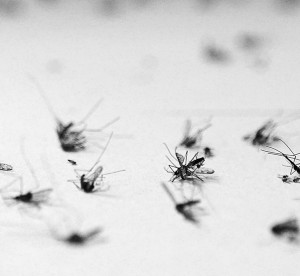Air Force photograph by Airman 1st Class Devin S. Michaels
Mosquitoes may not be a huge topic discussed when stationed at Edwards Air Force Base, however, that may not be the case this year.
Though the Mojave Desert gets as hot as 100 plus degrees during the summer time, there is still a good chance that mosquitoes may find areas that have potential for breeding.
Why is this a public health concern? You may have heard on the news that El Nino has hit the United States and is expected to bring in more heavy downpours. Heavy rain equals a lot of standing water, which can contribute to a bigger population of mosquitoes.
Why should we be concerned about mosquitoes? Mosquitoes can transmit diseases from animals and humans. These diseases can range from Chikungunya, Dengue Fever, Encephalitis, West Nile Virus and the emerging Zika Virus.
What is Zika Virus and why is it the hot topic on the news? There has been an influx of Zika Virus cases originating from North, South and Central Americas. This virus, like other arboviruses (insect-carrying viruses), is transmitted from the bite of an infected mosquito (primarily Aedes aegypti for Zika).
Persons who have been bitten by a mosquito carrying any disease, or specifically a Zika-infected mosquito, may develop flu-like symptoms within a few days to a week, such as fever, rash, joint pain, conjunctivitis (red eyes), muscle ache and/or headaches.
Everyone is susceptible to the Zika virus and other mosquito-transmitting diseases, especially high risk populations (i.e. elderly, children, pregnant women, and immunocompromised individuals).
Why is this important to know? Presently, there is no vaccine or medication available to prevent or treat Zika infections but presented symptoms are treatable. It is important that if you develop signs and symptoms to schedule an appointment with your primary care manager to be evaluated and treated. At this time, there have been no reported deaths related to the Zika virus. This is why it’s important that you follow the recommended guidelines to prevent contracting Zika virus or any other insect-carrying diseases:
1) Mosquitoes are active during the hours of DUSK and DAWN
2) Wear long pants and long sleeved shirts to prevent being bitten
3) Use mosquito repellent with 20-25% DEET
4) Check for areas where there is standing water (i.e. empty tires, puddles, cans) and eliminate those areas by filling it up with dirt and/or empty the water
5) Ensure screens on your doors and windows do not contain holes where mosquitoes can get through
Contact Public Health at 661-277-2244 or 661-277-2270 if you notice increased mosquito activity, plan on traveling to another country where diseases are prevalent, or would like up-to-date information on diseases.













